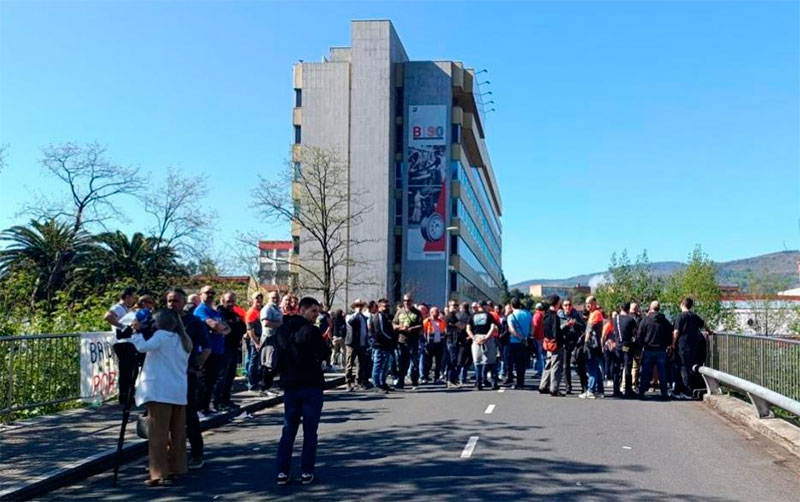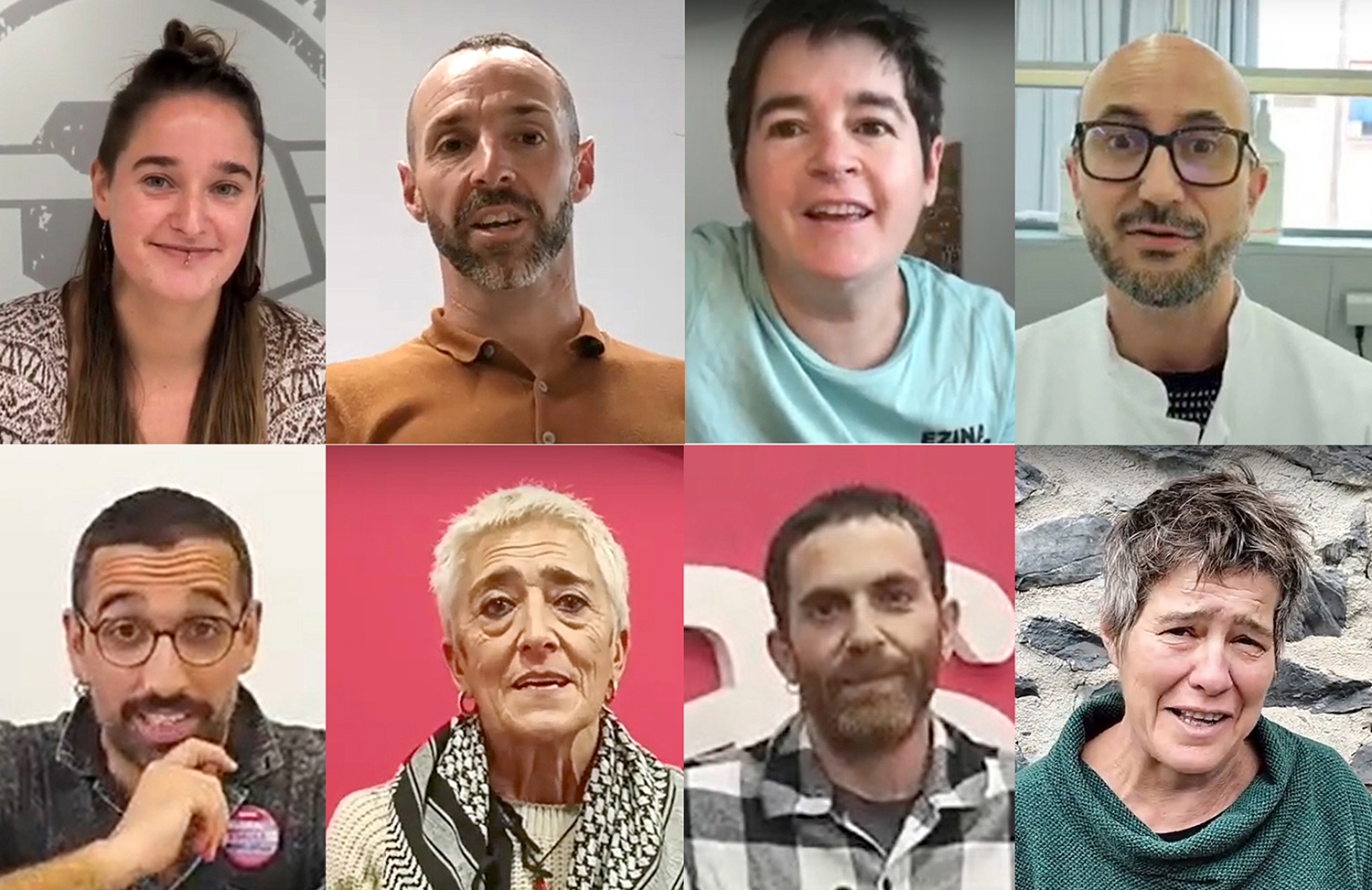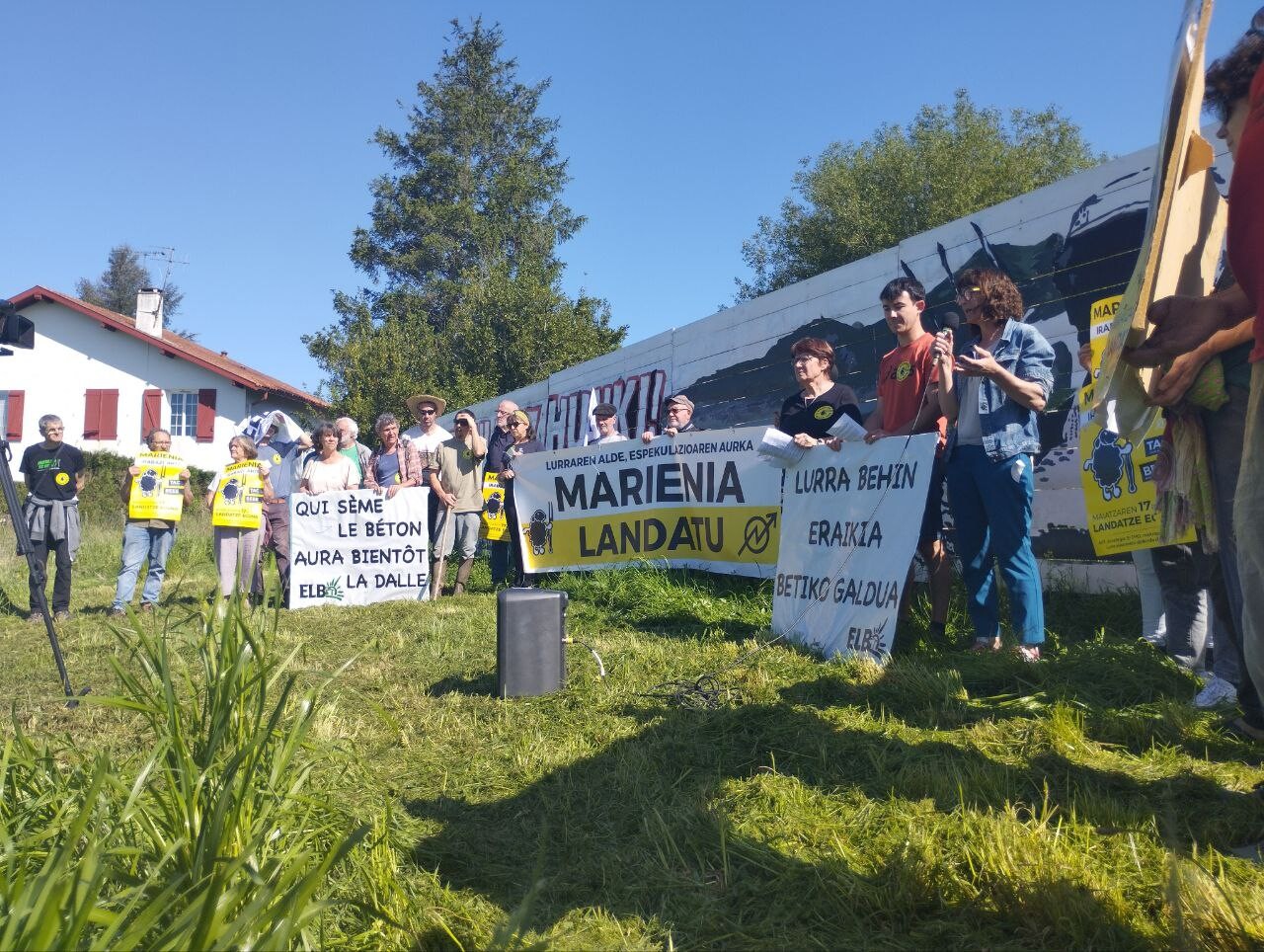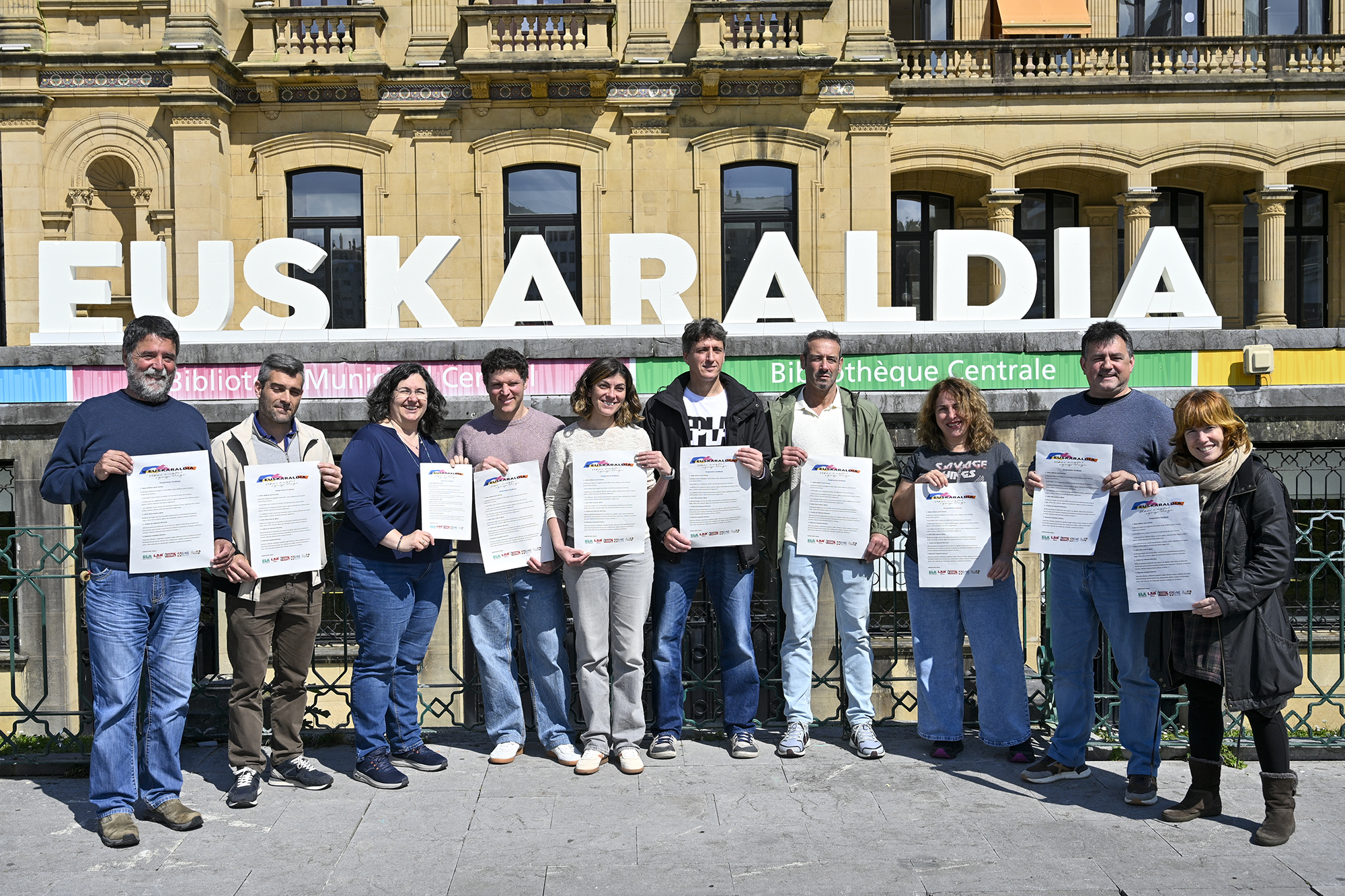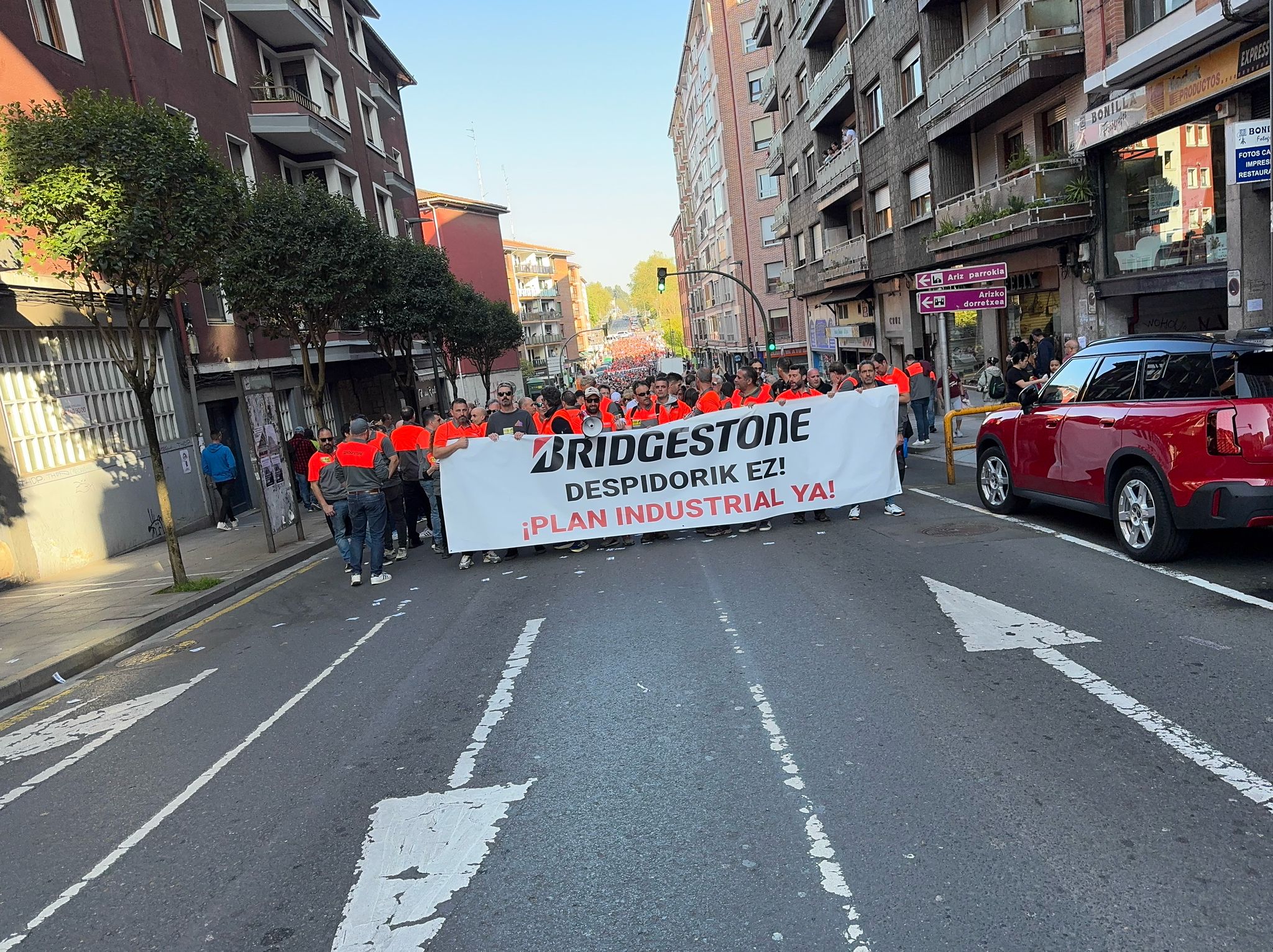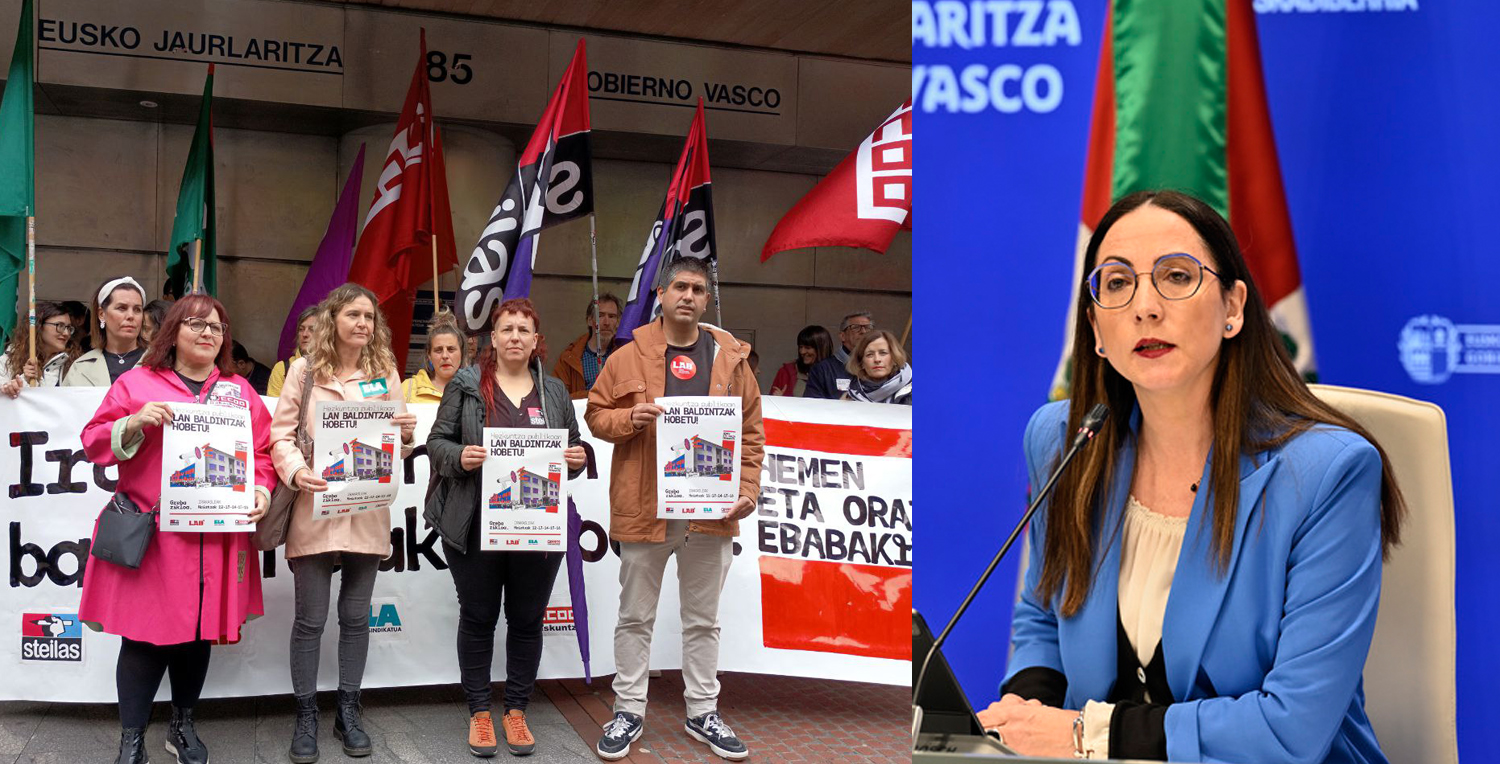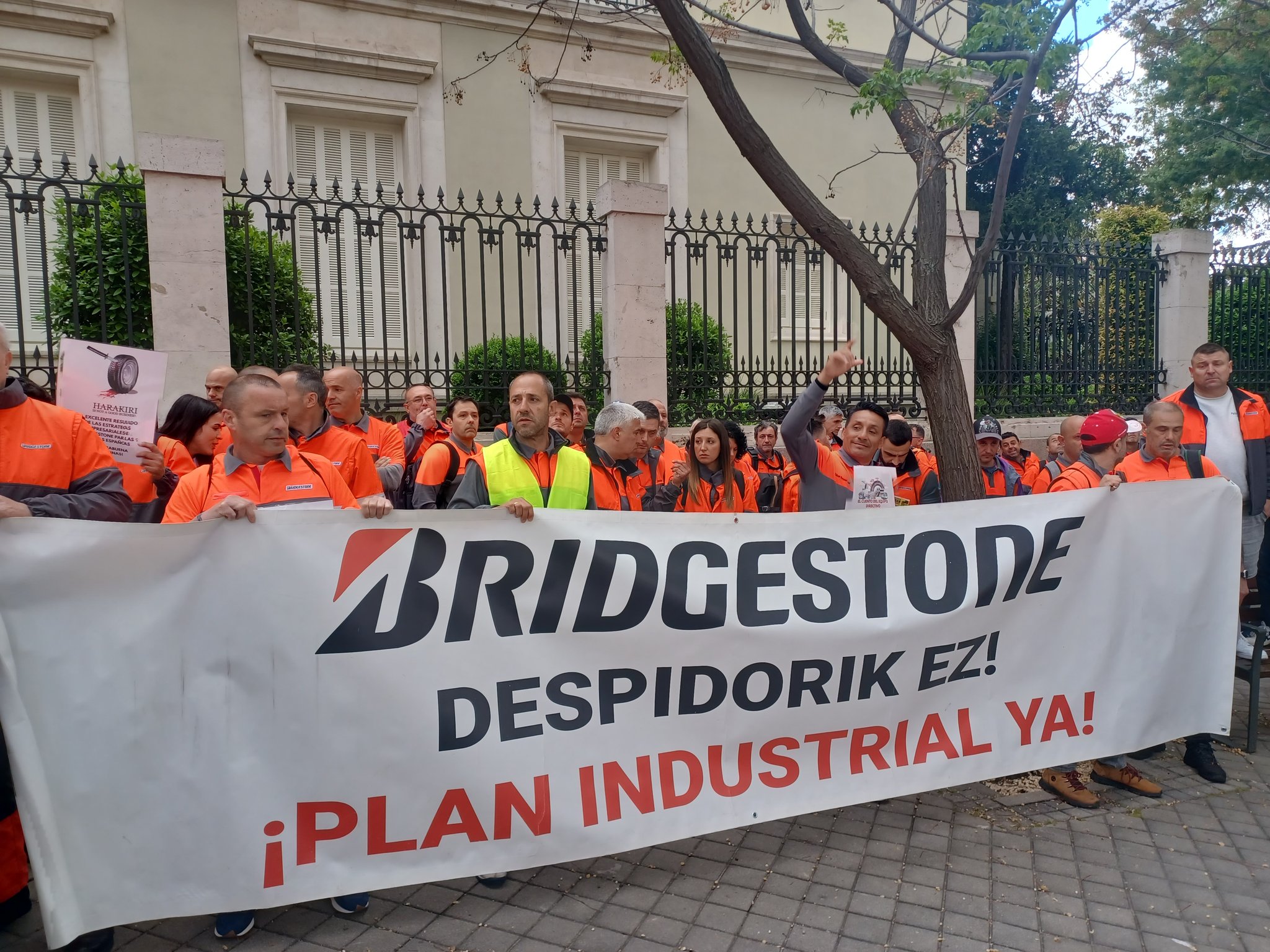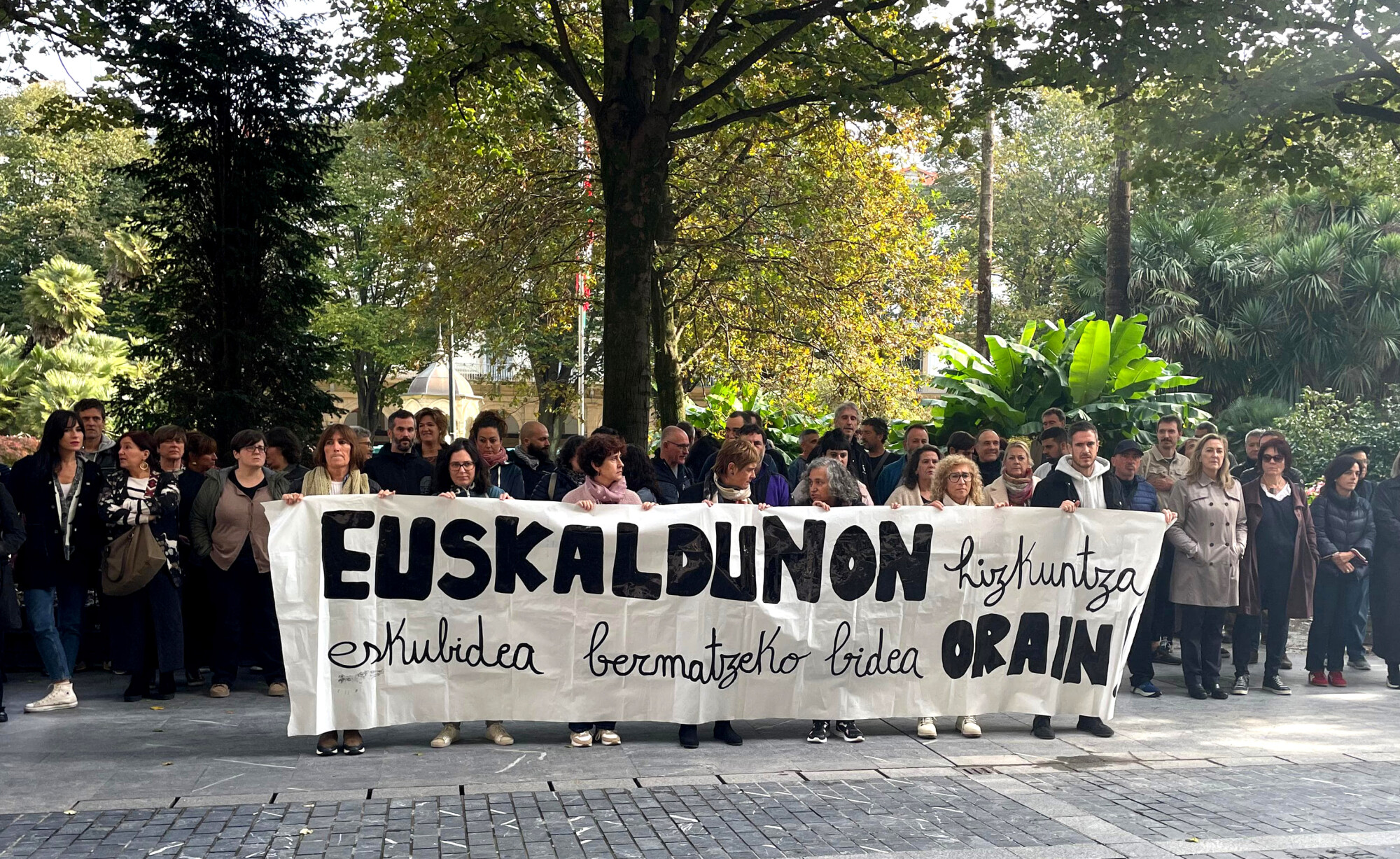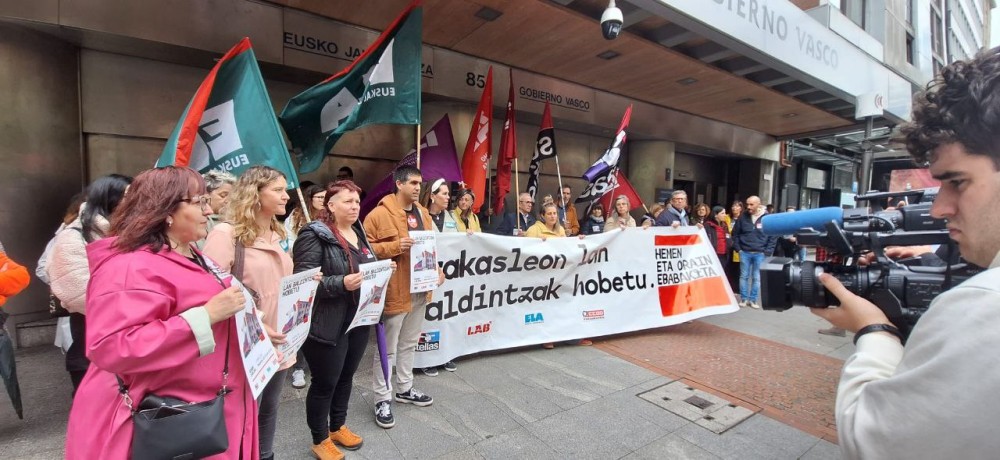Industrial workshops after the storm
- It is not going to be anything like that, we are not going to go back to the situation before the crisis. But how has the industrial fabric of the Basque Country withstood the confusion? How have the flagship factories of our peoples remained? In this report we will present seven companies and their workers who have had different routes and finishes.
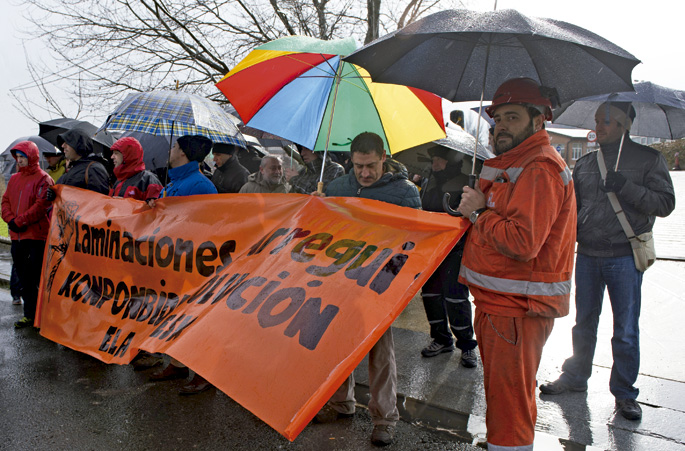
If there has been a black Monday in the recent history of the Basque economy, that was October 21, 2013: Fagor Appliances interrupted payments and sent 1,800 people to unemployment. The Basque Government stated that this was the "worst economic news of the year". Just two years ago, Mondragon’s historic cooperative was immersed in a bloody concursal process. The CNA is now in the hands of the multinational holding company, which has become a public limited company. The savings of some and the posts of those who have not been “relocated” have remained unchanged from one thread.
The case of Fagor Household Appliances is not common in the world of cooperativism, which has had great resilience to unemployment, but it does show the scale of the crisis. Over the past seven years, their bosses have closed the doors of their factories in many conventional capitalist companies. One point: In Álava, 30% of industrial employment has been destroyed since 2008.
In Álava, the flight of the multinationals has been brutal, and sometimes they have received polls with public money in their pockets, as the case of Daewoo Electronics shows. But this trend has also influenced other places: In the Sakana, for example, at the beginning of the crisis, the closures of Arfe, Isphording and Gamesa opened a huge peak. In Gipuzkoa, the indigenous industry has been one of the most affected, and in Bizkaia, especially the metal sector.
At the time of crisis and industrial reconversion, which began in the mid-1970s, many took the path of cooperativism. In these years, the Basque industrial sector lost 20% of employment, while in the cooperatives of the Mondragon group the work continued to rise. The number of anonymous companies that in the 1980s became SAL or labor associations for the maintenance of jobs was also very high and the workers became owners of the company through this legal entity.
In the current context, when the social economy – and increasingly transformative, supportive… – is more echoed, the workers of significant companies have often found the way to address these solutions, and compared to small initiatives, not so many medium- and large-sized companies have launched these types of processes. Why? Perhaps you have to see that your level of indebtedness, your dependence on the investor or on foreign capital, or that we may be faced with the most complex crisis that has ever occurred.
In any case, workers have resorted in one way or another to various formulae: some have tried to get the company, others have dealt with their problem from the chest in the courts, but they have all acted in defence of jobs rather than throwing their lungs. Next, we've measured the atmospheric pressure of some of them.
Azkue (Azpeitia): bottom up
Ahead: Societal anomime of the furniture industry, which in 2008 had 200 employees.
Then: To the extent that they become SAL or Labour Association, a workforce of between 80 and 100 people is expected in 2016.
Located in the Urrestilla district of Azpeitia since the 1970s, Azcue was a landmark company in the town. Aroused by the rise of the buildings, he made large investments and hiring during the bond in the early 2000s. But when the bubble burst in 2008, it was the first problem, with a turnover of up to 60 percent. Many consider the closure and reopening of the plant as an "example of upward management," the bankruptcy administrator said. Most redundancies have been agreed and the works council has always had the opportunity to resume part of its line of business on the horizon.
Two years, three robberies and two million euros later, in June the inauguration festival of the new Azkue – this time with the letter “k” – was held by the working people of the working society, who lead the majority of the company’s capital. So far this year, 50 people will work in the construction of parking lots and street furniture, and the challenge is to face the initial deficit.
Troquenor (Sondika): the pagans of the crisis
Ahead: Troqueleria del Norte, S.A., automotive company, worked 100 workers.
Then: After long occupying and camping activities, it remains closed.
On June 18, 2013, the cry “Troquenor ez itxi!” was heard more loudly than ever before in front of the factory fence. Inside, on the other hand, was the “silence of death”. On that day the Ertzaintza fired 120 workers from the pavilion, after two enclosures to prevent the expropriation of the machines: “We are the pagans of this situation, we are in the worst place,” said one of the workers, excited. The next day they returned, even though the door was closed.
It was the penultimate chapter in a long story. The troquenor stammer stayed forever in December 2012, after several years of Employment Regulation Dossiers. The owner had debts of millions of euros, a large part of them to public entities and another to workers, as at the liquidation stage he had not paid any wages. They also studied the possibility of creating a working association, but in vain. Finally, a judge in Bilbao authorized the redundancies and fixed the minimum allowances resulting from the labour reform.
Koxka (Iruñea): Difficult contestants
Ahead: It was in the hands of a foreign investment fund and had a staff of about 250 employees.
Then: The workers have tried to get ownership, but it has finally been acquired by a group of investors who have exhausted it. By the end of 2015, 100 people are expected to play.
The example of Koxka, a company that makes the freezers, shows that sometimes owning their work does not depend only on the will, especially when the sound of txin txin sounds.
At the dawn of the crisis, the company’s management, ELA, ESK and LAB, denounced the trade union persecution and fired nearly 300 people from the plants they had in the Landaben polygon of Pamplona and in Peralta, under the name of Kobol. The court overturned the decision, but by then its future was already in the hands of a U.S. venture capital. This, after fattening the cold, left the company suffocated with debts – the representatives of the multinational had to flee through the back door of the factory, literally seeing that they were surrounded by the workers.
Then it was time to present candidates for the start-up of the business and the workers progressed one step: 108 members started the process of creating the SAL or working association. In their view, the company is viable and for this purpose they developed a plan. They have had tough competitors at the same time: a team made up of former managers and high-powered investors. The judge has fixed the "economic difference" between the two options and since mid-October some 50 workers have started producing for the company Group K Refrigeration.
Laminations Arregui (Vitoria-Gasteiz): Court crossing
Ahead: Celsa Atlantic fired 352 people in 2012.
Then: The judge annulled the decision after two years of litigation in which he was found guilty of murder. Today, workers continue to face threats of dismissal of their workers.
“The struggle of Laminaciones Arregui (Celsa Atlantic) shows that defending the rights of workers is worthwhile with conviction and honesty.” The ELA trade union has been proud of the experience of the Vitoria-Gasteiz steel plant. Despite the many mobilizations that had already taken place, the real ezains-dantza began in 2012, when 91 people were put into circulation. In the midst of the strike and the negotiations, the company launched a toll: either they accepted the conditions or the 356 comrades on the street. He also tried to divide the speech by convening illegal assemblies. Many will be marked in red on 9 July 2012. That day, at the door of the factory, many discovered all the meaning of the word “scarol” among egg yolks.
There are many initiatives taken by the workers to denounce their situation, but there are also those who have come on foot to Barcelona to talk to the main Celsa Atlantic leaders. But the longest and most fruitful road has been the courts. The High Court of Justice of the Basque Country and the High Court of Justice of Spain have consistently laid down the decisions and remedies of the company. At the end of October, after two and a half years of crossing, the workers of Laminaciones Arregui have returned to the pavilions of the Betoño and Urbina region happy, but attentive to what may come.
Inasa (Irurtzun): the giant vacuum
Ahead: The venture capital company Baikap acquired it in 2010 and started the process of dismantling the aluminium plant.
Then: The workers protected the machinery with the popular wall. It is currently closed.
In a small plastic and wood chabola, Inasa workers face the cold with a hot broth at the factory door. We are in May 2013, a day of strike. A week earlier, many workers and citizens had practiced the labor variant of the “village walls” so that they would not take the machines and get it.
Since 2010 the venture capital company Baikap took over the process of gradual dismantling of the Inasa: first the wage cuts, after the implementation of the labor reform of Rajoy, the final employment regulation dossier for 155 people… The last was the auction of machines over the internet. For workers, however, there were investors for the start-up of the plant: “What we asked for is time,” they said. But on a calcined day in August 2013, three trailers sent by a distant multinational entered the pavilion with the help of the Civil Guard, leaving only a huge gap in the area where the machines were located.
Salcedo furniture (Viana): cooperative redemption
Ahead: The furniture manufacturing company closed its doors and announced that it would leave 132 people in the street.
Then: The workers have created the cooperative and are already in operation with a group of partners of 50 people.
In the late 1960s, 144 families moved from Torrecilla de Cameros (La Rioja) to Viana (Navarra), forced by Salcedo Furniture. Almost half a century later, many of its successors own the company.
Between 2008 and 2012 Salcedo Furniture reduced its turnover from 22 million to 3.8 million. When the company went bankrupt, 49 workers went into bankruptcy and decided to set up the cooperative. It was not easy: each had to put money out of his pocket, capitalizing on the unemployment, cut the salary by 20% and give up the unpaid, ask for mortgages, use neoprene jackets instead of heating… The company that has become SCCL Furniture Viana has been fundamental to carry out the support of the Social Economy Companies of Navarra, as well as the financial guarantee of 700,000 euros of the company.
TS Funditions (Zestoa): the key to solidarity
Ahead: When the harsh restructuring plan was put in place and it remained in liquidation, protests and shutdowns were accelerated.
Then: The Gonvarri Group has bought it, after agreement has been reached on the commitments for the readmission of former workers.
The patience of TS Specific workers ended on April 29, 2014: “You will have to break the door behind… Enter as you can,” they said with the sterile nerves in your hand. With the two-day lockdown they managed to raise the tone of their struggle until then and draw the attention of the Basque Government in some way.
In the Sansinenea polygon of the Zestoa Basin, two years earlier the TS crossroads had begun with the change of management board. In early 2014, the management announced the liquidation of the company and the departure of 156 workers from it. With the solidarity of the citizens of Zestoa and the region, the workers of the TS have demonstrated a great capacity and strength of mobilization. A reflection of this is the large number of citizens who congregated abroad when they were locked up in the pavilion, or the 4,000 signatures that came before the court not to close the company. In May 2015, the subsidiary Iraeta Wind of the Gonvarri group won the creditor competition and pledged to invest more than EUR 5 million in the reopening of the plant. The news has brought hope to Urola, as the traumatic closure of Corrugados, in Azpeitia, is still very much remembered by many.
Bertsolari participated in the event organized in Plaza de Zestoa to celebrate the opening of TS Usan, under the title “… at the moment when the breath is squeezed / it breathes peacefully”. But it was also clear that the workers have “their feet on the ground”: “We continue with the same uncertainty, we have an investor, but we have a long way to go, the most difficult one, because at this opening stage we are not all going to enter. It’s going to be a drama for many families, because unemployment is running out of us,” says Miguel Romero, who has been working on TS for almost 20 years. On the Facebook page of the TS workers you can read a last laconic statement written in October 2015: “To many of us the paroa ends now. Terrible, but that's the reality. We have to think about asking for a subsidy…”.
I found the old news on the LIGHT ephemeris channel: On April 23, 1918, Irish workers went on a general strike in I. Against forced recruitment for World War II. Thanks to the response of the workers and independence supporters, Britain was forced to retreat.
We don’t have to... [+]









